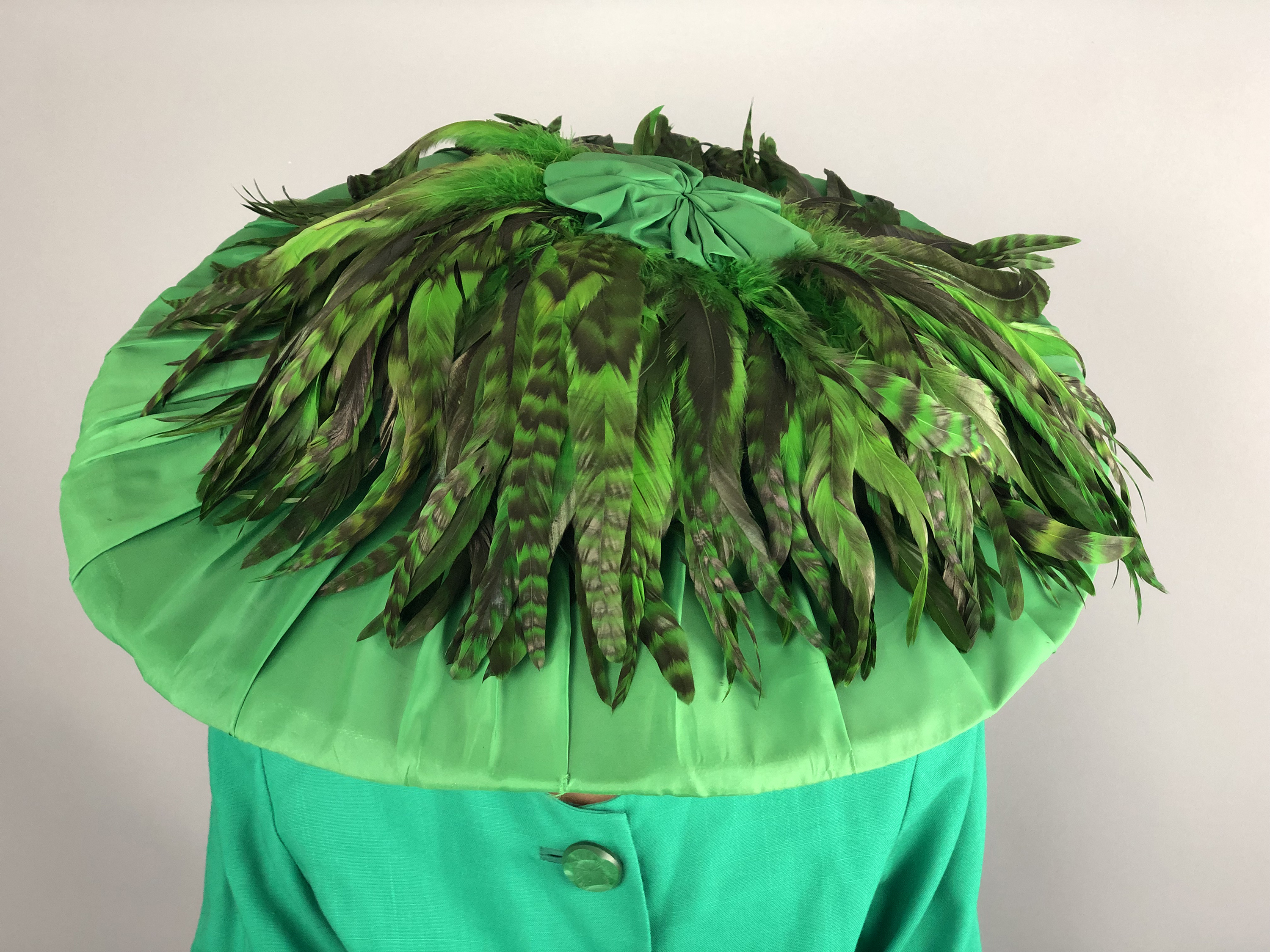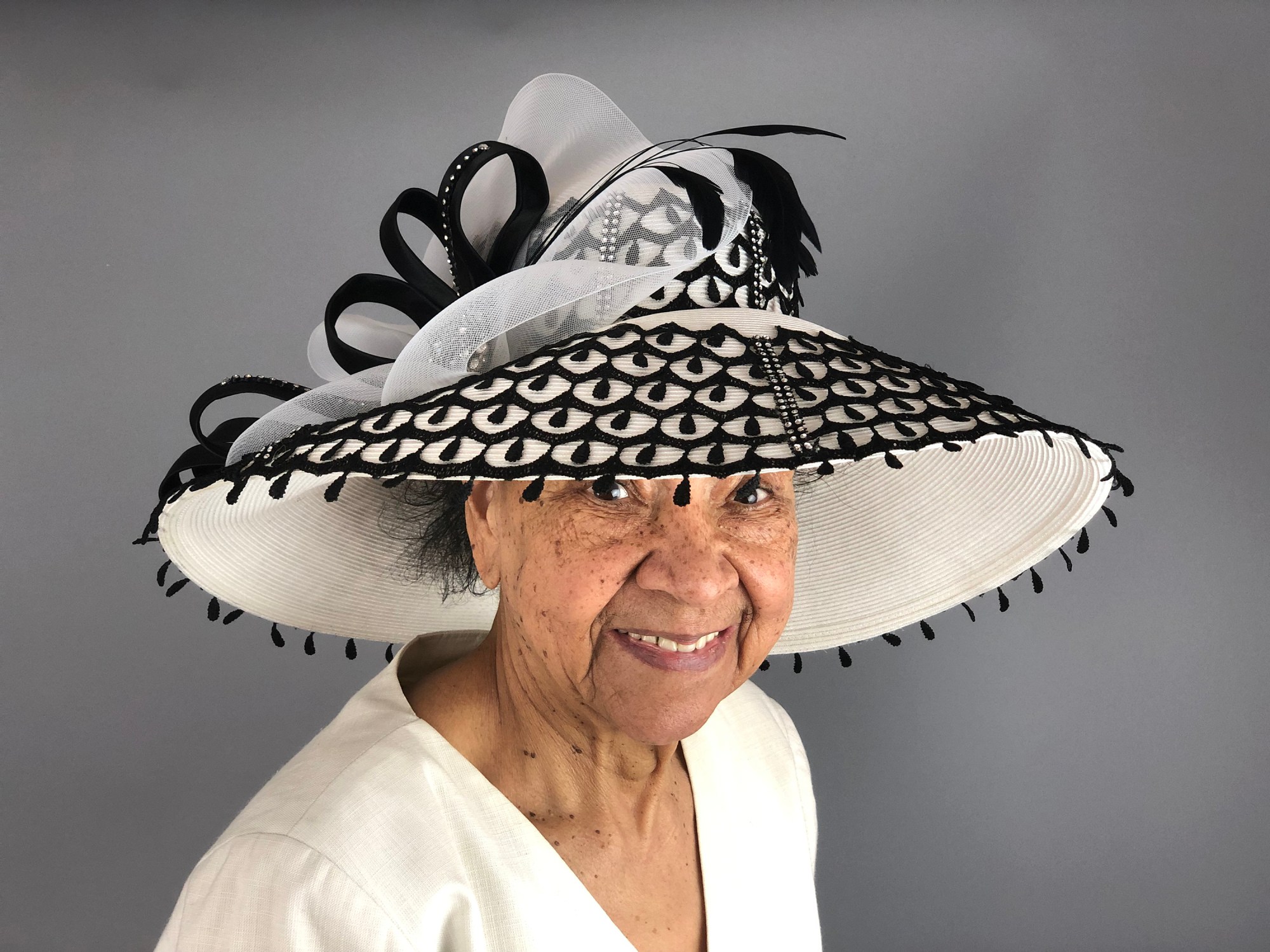
- Fashion
Dr. Frances Pratt is “The Pratt in the Hat”
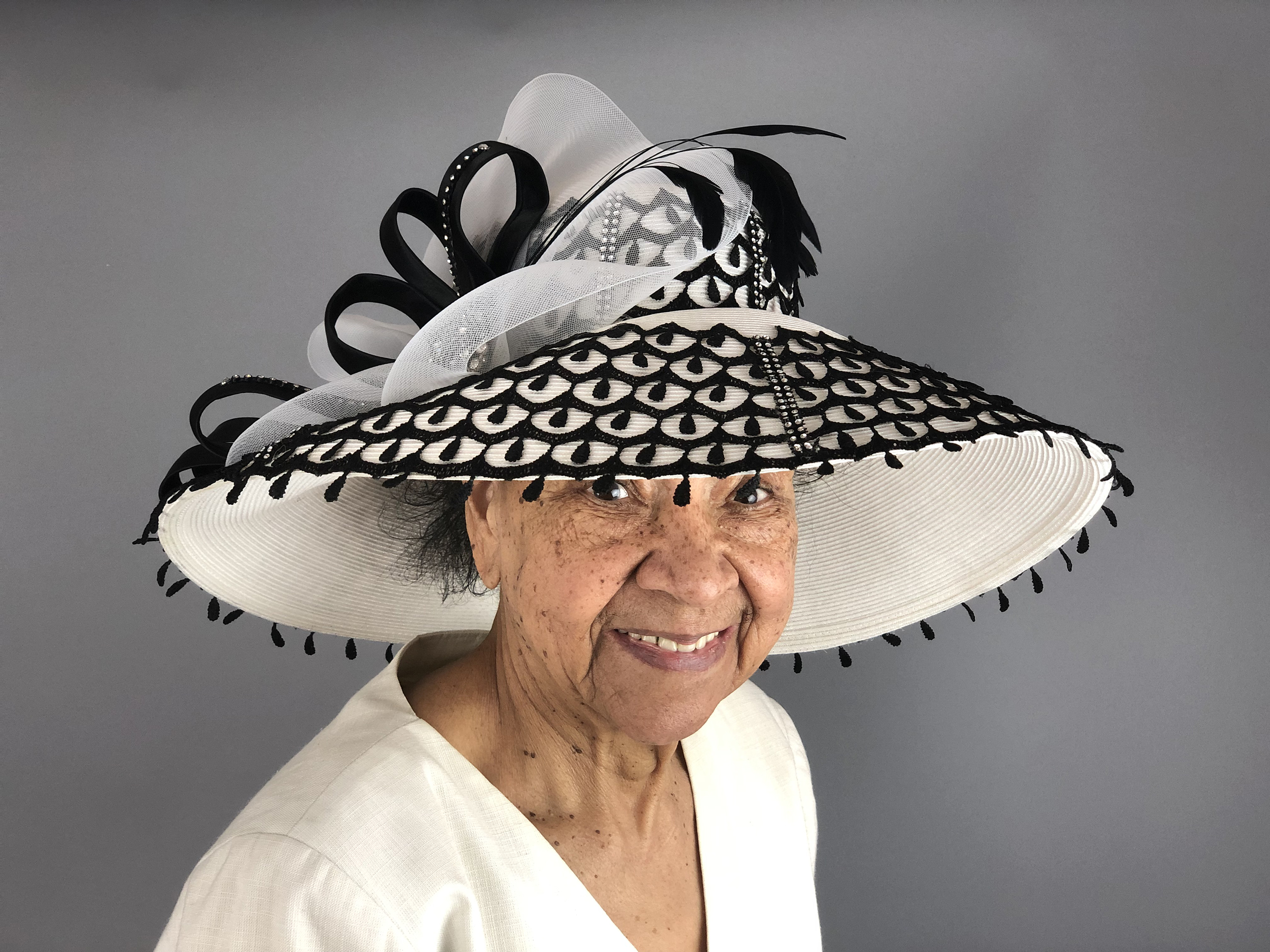
The Pratt in the Hat is a short film directed by Susan Hillary (aka Shapiro) about civil rights leader Dr. Frances Pratt, Nyack NAACP President for decades.
Pratt had worked for years as a nurse and was the first African American head nurse at Nyack Hospital’s emergency room. Known for her trademark hats, Dr. Pratt, born on May 13, 1934, has been recognized with over 140 awards and honors including the Heroine Award from the National NAACP in 1986, induction into the Rockland County Civil Rights Hall of Fame in 2003, the Harriet Tubman Award from the New York State Museum in 2006, the Liberty Bell Award from the Rockland County Bar Association in 2016, and the Belle Mayer Zeck Award from the Rockland County Women’s Bar Association in 2019, to name a few. Last year, Cooper Drive in South Nyack was renamed Dr. Frances Pratt Drive, honoring. Pratt’s service and dedication to Rockland County.
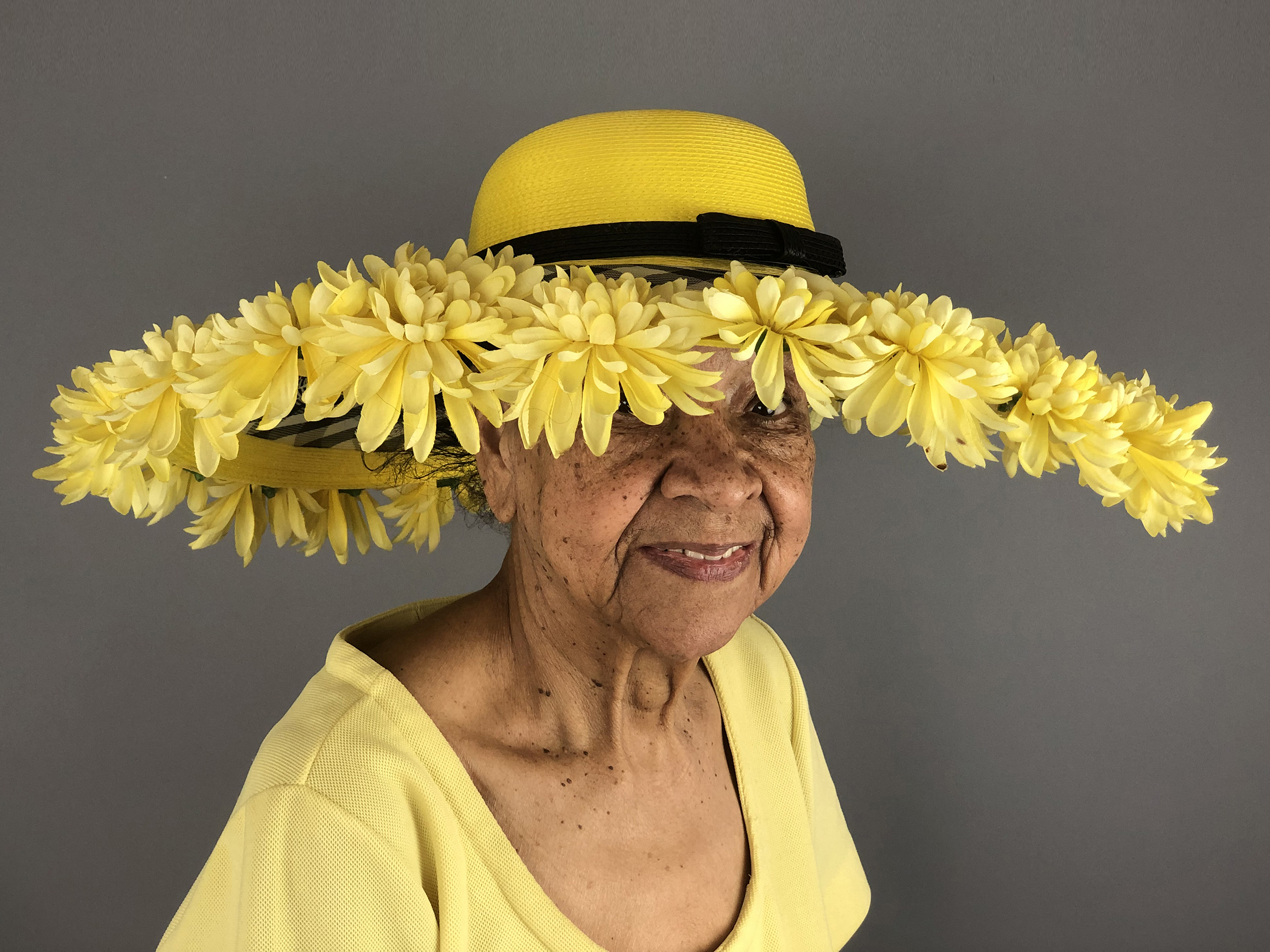
Hillary was inspired to create this piece when she spotted Pratt at a crowded NAACP political event. Pratt was adorned in one of her striking hats and to Hillary, she seemed a beacon of color. “I asked her if she would allow me to photograph her in her hats,” Hillary explains. “She agreed, and I found what lay beneath her large-brimmed bonnets was a woman whose personal insight and firsthand knowledge into racial equality made a bold statement, as do Pratt’s southern charm and pithy expressions which she garnered through a lifetime of service to her community fighting for racial equality, voting rights and education. A lifetime of service that is relevant, now more than ever.”
What started out as an idea for a photoshoot (Hillary still hopes to publish a coffee table book with the photographs) turned quickly into the short movie. “To come from the segregated South during Jim Crow days, and to be included with someone like Susan Hillary, just being asked to participate is just awesome,” says Pratt, interviewed via Zoom in her house in Nyack, wearing one of her signature hats with the perfectly matched dress.
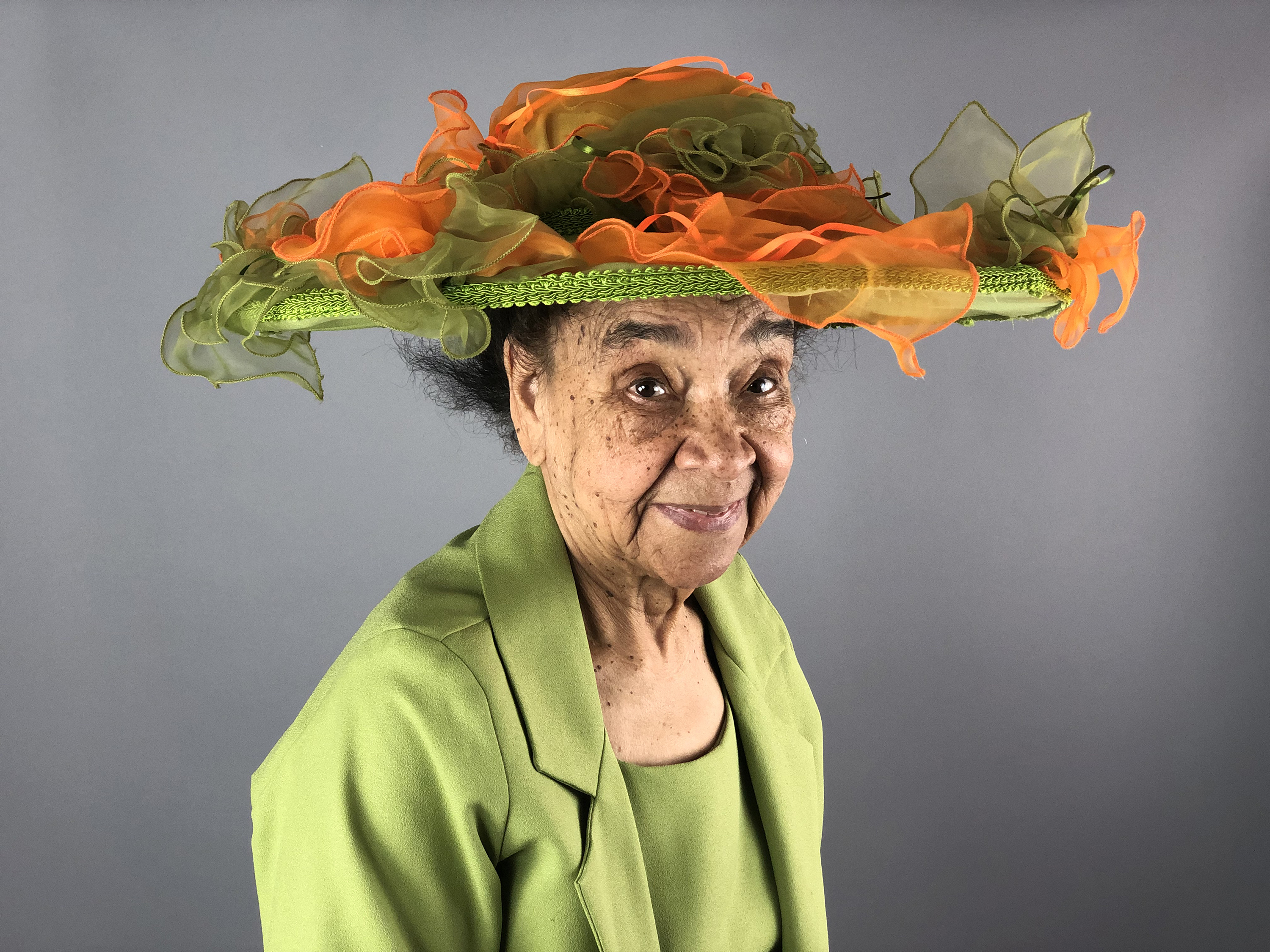
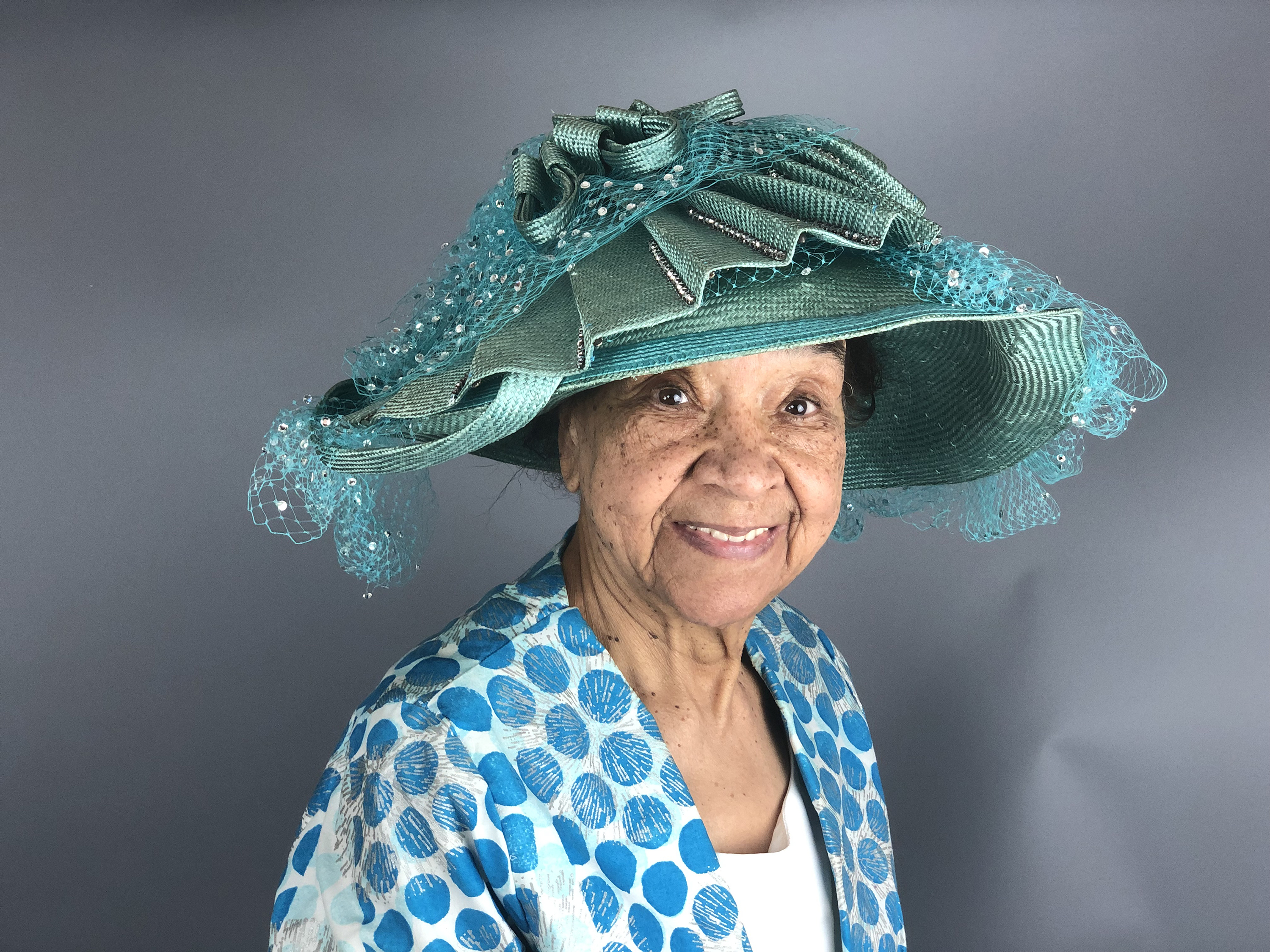
Dr. Pratt, your life has so much to teach us. It seems like you were so aware from a very young age.
Well, I am not exactly biracial, but my mother was biracial. Her father was Irish. And she just somehow had a vision of wisdom and knowledge that was equipped enough to bring us out of poverty, we still were in poverty. We always felt we were somebody, even though we didn’t have anything. And I will tell you what the statute was. Love. She gave us love. And that’s what mattered. I am a faith person and there’s this passage in the Scripture in proverb 18:16 that says, “Your gifts will make room for you and bring you before great men.” And what I mean by gifts, everyone has great talents, and we sell ourselves short when we don’t appreciate even critical things that people say. And an old minister told me one time that it does not hurt to listen to what anybody says because if you listen, that’s how you will learn. And it speaks volumes for me, it’s how I operate.
You say in the film that the church was the only place where women could feel like themselves. Was it like that throughout your life?
What was great about that, we used to sing Negro spirituals. You should meet one day a person by the name of Horace Turnbull. He came from the Deep South, Mississippi. And he’s been giving narratives on the meaning of the songs that the slave people used to sing. And one of the things we could do when we went to church on Sunday, there was an expression from us to the white man – the way you are treating us, you ain’t going to heaven.
When did your interest in medicine start and why?
I was going to Addis Ababa in Ethiopia to be a missionary. But my mother got sick after my first year of college and when I returned home in the spring, she told me that I was going to have to come to New York and get a job and take care of the family. So, I came to New York to do a sleep-in job for a Jewish family. And there was a presbyterian minister whose wife had founded a nursery at the Mt. Morris Presbyterian Church in Harlem. And when she found out that I was here on a sleep-in job and had a year of college, she hired me in that nursery, and she took me under her wing. And I sent money back to momma. I took care of all the housekeeping, all the cooking and everything, and worked in that nursery. And I was able to go back to college. And when I went back to college, I met my husband and I married him. His first wife had just passed, and he had so many bills and I had to forget about going to Addis Ababa, Ethiopia. I had to go to work. As a matter of fact, I worked three jobs. So, what happened is, they opened up a college for nursing, and that was the best thing that the United States has ever done, is when they started the two-year training in community colleges. And that’s how I became a registered nurse. And it was the closest I could be to being a missionary.
When did your social and political activism start? Was it also encouraged by your mother?
Well, from the time that mom had us, encouragement was the thing. It was our theater, it was our recreation, it was our sports, it was our school, it was everything. I maintained my activism by continuing to work in church once I came to New York. And then I got involved in high school with the National Association for the Advancement of Colored People. So, I felt very independent, I felt like I was somebody and I had something to contribute. And so that is how my activism happened, in the church and the immediate family. There was a time when Black people had what was called the extended family. In other words, any person of color could discipline you just like your immediate parents and there would be no repercussions behind it, except when you got home and that older person or that extended family person told your family that your behavior wasn’t appropriate, and you would get a good whipping from your parents.
You continued to be an inspiration throughout your life, and you are still extremely busy. What are the biggest challenges these days?
The biggest challenge is keeping up with technology. Because my schedule is so overwhelmed, if I tried to do everything on the computer, I wouldn’t be able to be humane to those people that really need me and count on me. But I know that we have to be adaptable to change, because if you are not adaptable to change, you may as well get a rope. And I hope you know what I mean by that. There’s a scripture in the Bible that says, “From one blood God made all of us.” Isn’t it a funny thing that God made a variety of everything? When he made a variety of humankind, did he mess up? I mean, he had a right to have a variety of human colors as much as there are different flowers and different blooms. It just doesn’t make sense for people not to follow the golden rule, and the golden rule is, do unto others as you would have them do unto you. And too many people today are all in the blueprint, the blueprint for survival is written in the Word. When I say the Word, I mean the Bible. Whether the people believe it or not, it’s like an insurance, it’s better to have it and not need it than to need it and not have it.
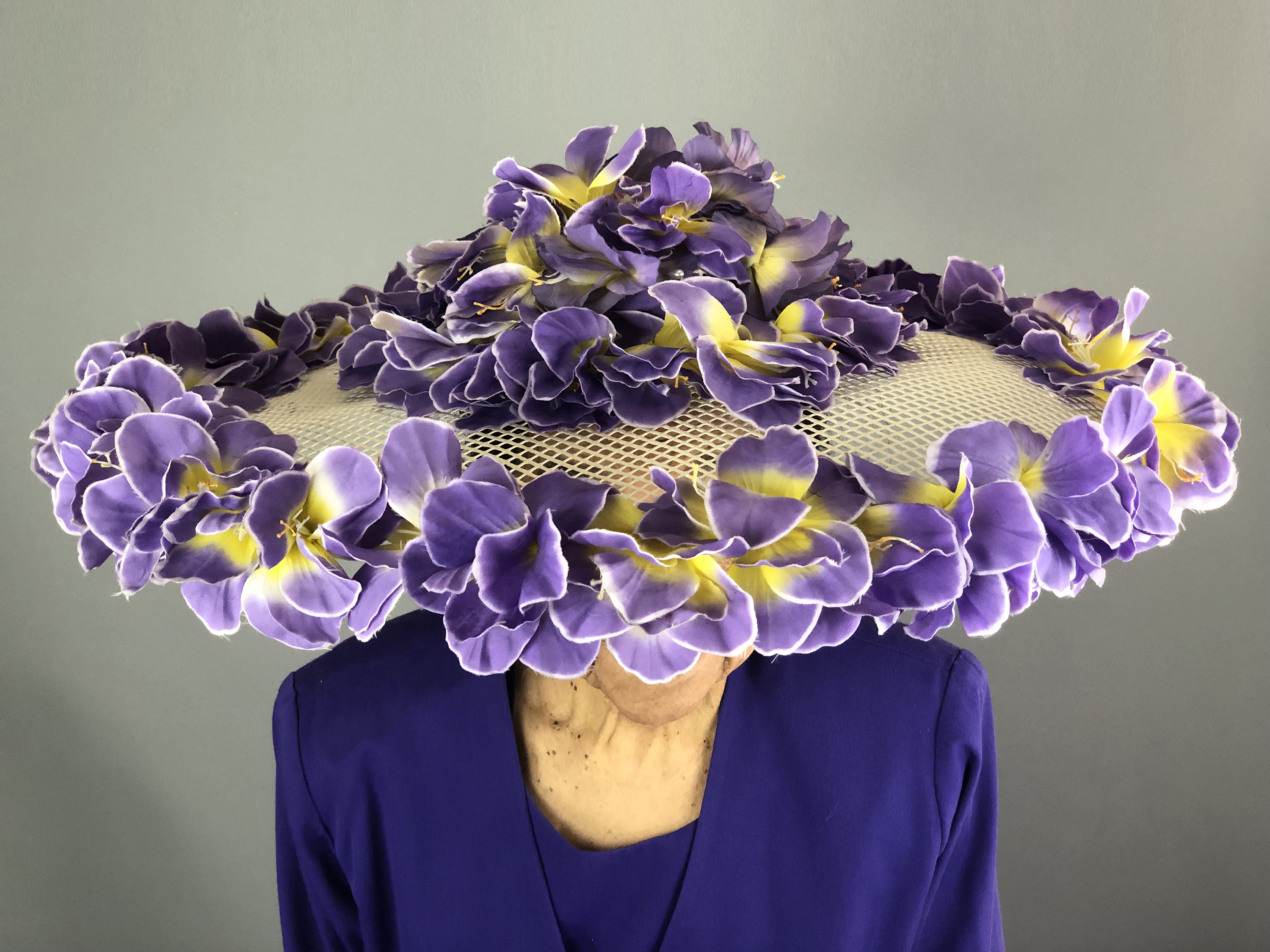
Dr. Pratt, can we talk about your amazing hats now for a minute? You mention in the film that your husband was color-coordinating them. Tell us more about them.
My husband actually thought that I was good-looking, he really did. He just wanted to bring out of me whatever was in me that was missing. And he was an artist by his profession since high school, and he tried to bring what he thought was my beauty out of me by courting me with what I wore. He would design every outfit that I wore, and he would have a hat to match it. But as I said in the film, when you go away to the North from the South, when you go home, people think you have arrived. And they think whatever you brought in the suitcase will be distributed among them. And so my four sisters used to take my outfits, and my husband thought of a way that he could make me bring my things back because he enjoyed seeing me wearing them. So, he coordinated everything to the hat, so I could say, oh, that goes with that or that goes with that, and they couldn’t wear my dresses. So, I was able to solve that problem.
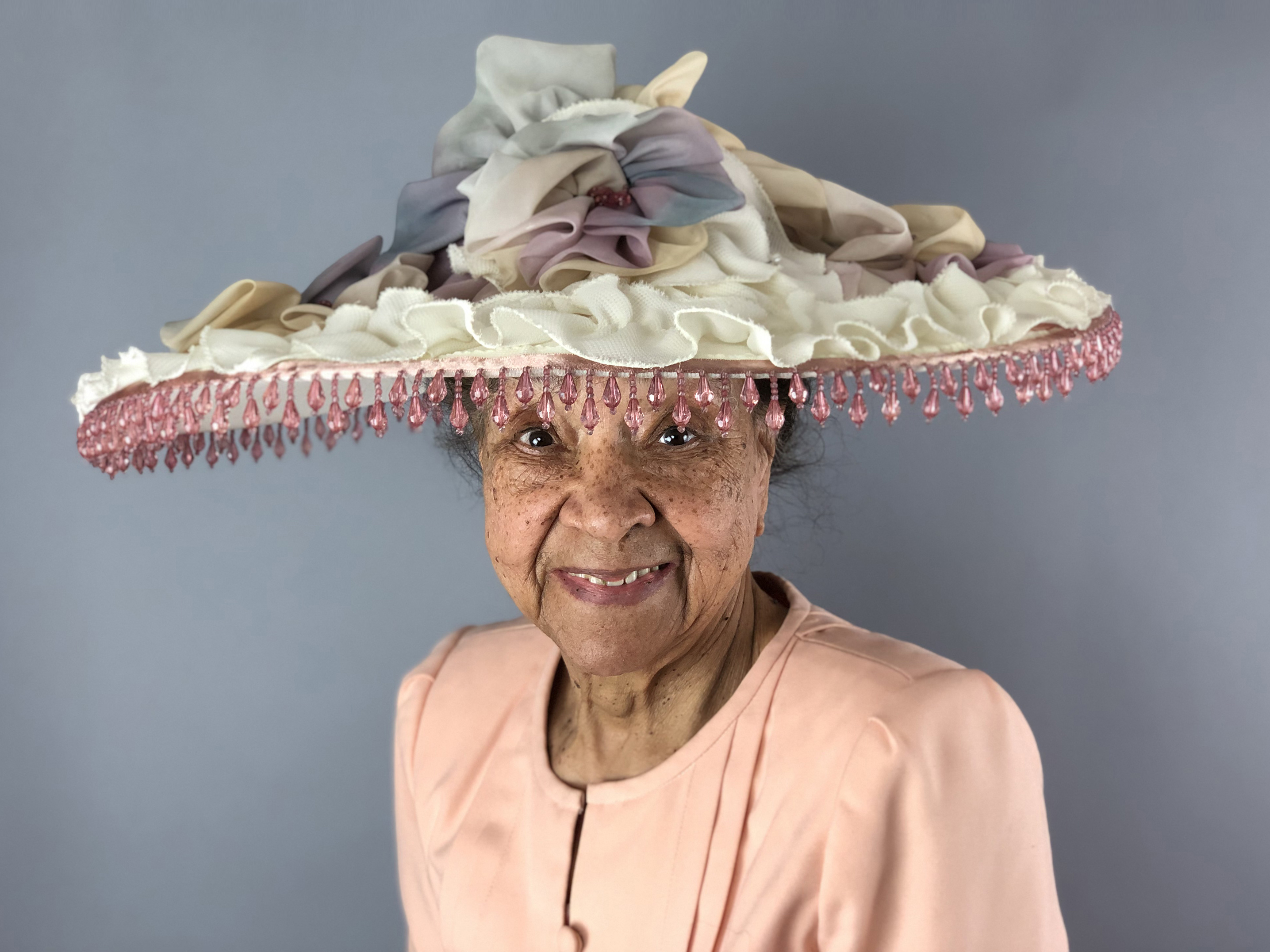
So, your husband designed all the hats you wear? Did he also make them?
No, he tried to make them, but we didn’t have anything to make them from. So, we used to order the empty frames from Manners Millinery down in New York City, and we bought the fabric to cover the frames. And there was a little girl in our church named Josette Peterson who would make different designs with ribbons, sewing the bow, the flowers or something and cover those frames.
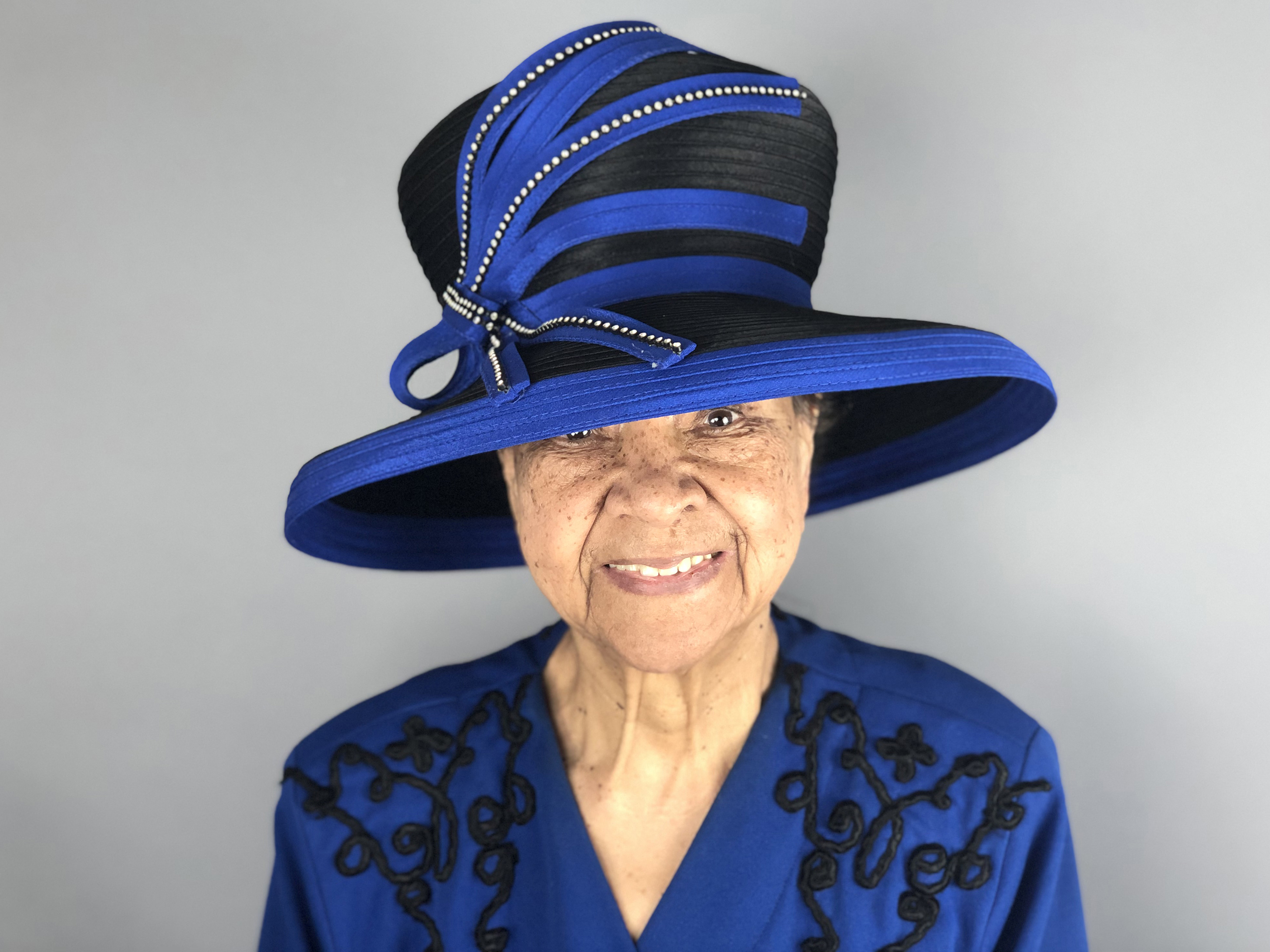
What about the dresses?
Some of the dresses were purchased and then the hats were made to match. I started wearing hats with everything. I purchased a dress in a store, and we would get a hat. It’s a material of similar color and you would decorate the hat. That’s how we did it. Now, since my husband is no longer with us, he passed away in 2003, the hats I wear now are ones purchased from stores. Now this particular hat was given to me by one of the minister’s wives here.
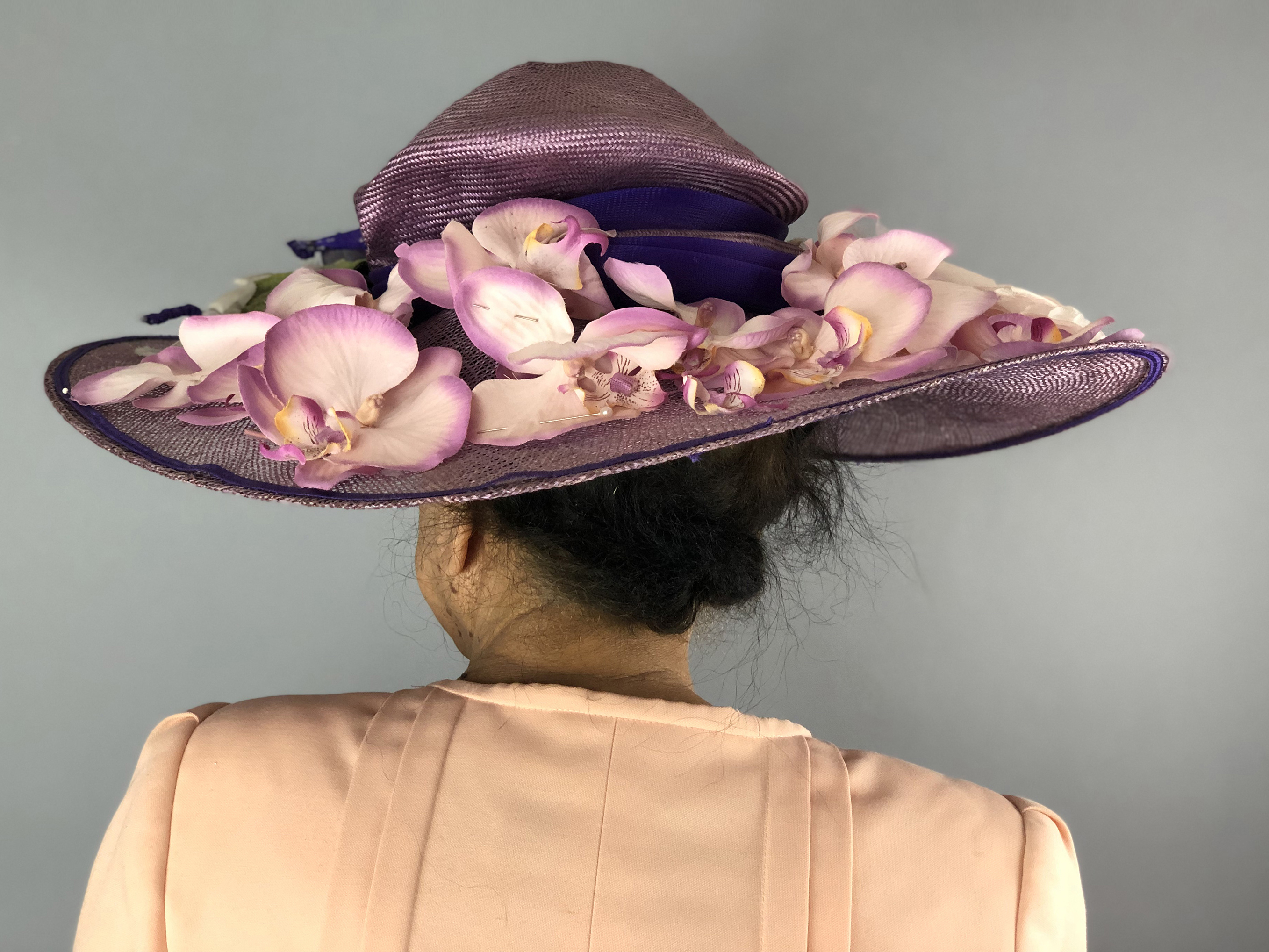
Do you know how many hats you have?
Oh, I don’t know for sure. Hundreds! They are everywhere in my house!
Finally, with everything that is going on around us, what are your main concerns, politically, socially?
To bring critical race theory in the forefront in a way that it will not alienate but will build. And to work hard on these issues is something that we need everyone to come to the table and fix. It doesn’t matter what comes up in a conversation, or how critical it is, if the two sides can come together, then you can build. There is too much distraction among races when we all should be on the same page. My biggest concern is with the voting, how so many parties don’t want early or mail-in voting. And there are a lot of different things that are keeping people separated. I think we need to work towards building together [rather] than separating, those days are over. Everybody should be at the table. As Shirley Chisholm said, if you are not at the table, bring a folding chair. We have to be more informed; we need to get involved in the political process and we have to be in the know. As people used to say, ‘be in the know.’ Know what’s going on and be active.
